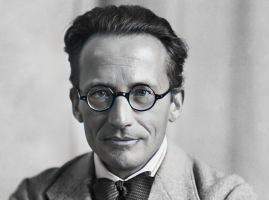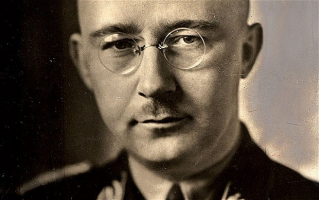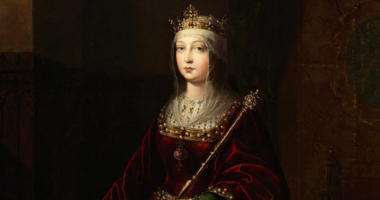Top 10 Interesting Facts about Erwin Rommel
Erwin Rommel was one of Germany's most famous generals, who played an important role in World War I and World War II. Rommel's tactical skills, experience and ... read more...resourcefulness were highly appreciated. Over the course of his career, he served in the Wehrmacht of Nazi Germany, the Reichswehr of the Weimar Republic and the army of the German Empire. There are interesting facts about Erwin Rommel that you may not know. Don't worry, the following article of Toplist will provide you with all the information.
-
One of the interesting facts about Erwin Rommel is that his family lacked much of a military tradition. Rommel was born on November 15, 1891, in Heidenheim, a city in the southern German kingdom of Württemberg, then a part of the German Empire, 45 kilometers (28 miles) from Ulm. He was the third child to be born to Erwin Rommel Senior (1860–1913) and Helene von Luz, whose father, Karl von Luz, was the leader of the local government council. They had five children altogether. Rommel's father was a lieutenant in the artillery when he was a young man.
Rommel's older sister recalled him as a kind and submissive boy, despite the fact that he would later become famous for his daring warfare strategies. He co-built a full-size glider at the age of 14, and then disassembled and reassembled a motorcycle as his interest in math and engineering grew. He wanted to go to university, but his grades weren't good enough, so he planned to work at an aircraft factory close to his hometown in southern Germany. But his father, a school administrator, persuaded him to think about enrolling. Rommel, then 18 years old, was rejected by the artillery and engineering before being accepted as an officer cadet to the infantry in 1910. In contrast to his father and other male relatives, who left the military after finishing their mandatory service, he will remain in it for the remainder of his life.
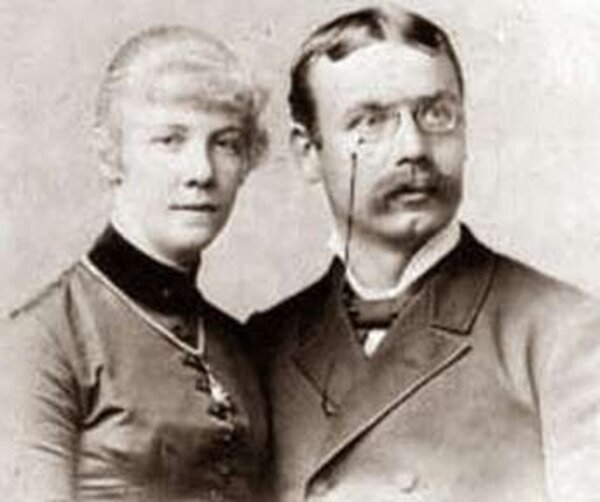
Photo: http://photos.geni.com/ 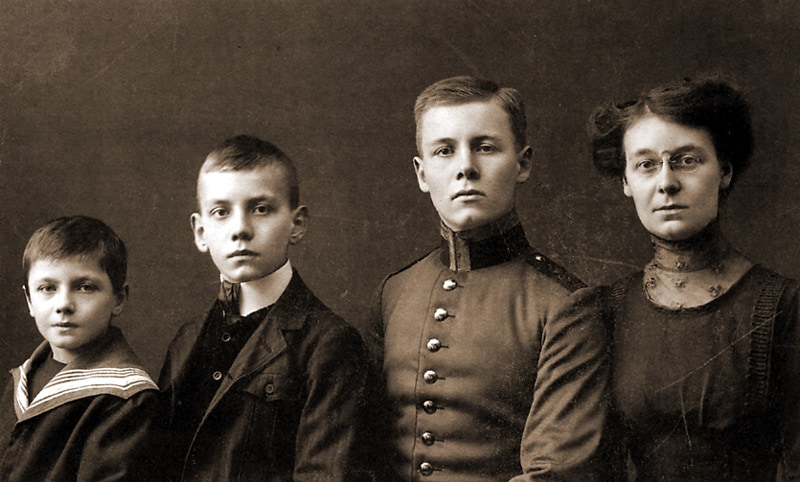
Photo: https://historycollection.com/ -
Rommel's men are supposed to have made the joke, "Where Rommel is, there is a front," while taking part in perilous reconnaissance and raid missions throughout World War I. However, all of this activity including 52 hours during which his battalion captured almost 9,000 Italians came at a price. For instance, in September 1914, after running out of ammo, Rommel ran at three French soldiers with a bayonet, only to be shot in the leg so severely that a hole the size of his hand appeared. He lost a lot of blood from a bullet in his arm three years later in Romania, and he also experienced constant stomach ache, fever, and tiredness.
During the Second World War, there were more cases of medical ailments, such as appendicitis and face injuries brought on by bullet casing shrapnel. Then, following the D-Day assault, an Allied Aircraft struck his convertible while it was flying above Normandy, France, causing it to flip over. When the smoke cleared, Rommel had many skull fractures and glass shards on his face, and he was also unconscious. After this event and the injuries, he had to take a long time off to recover his health and prepare for the next plan.
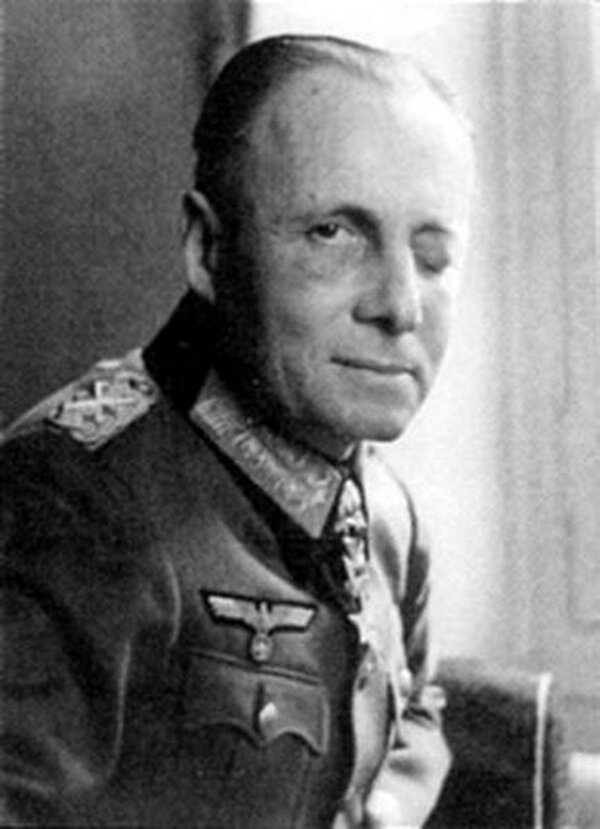
Photo: https://i.pinimg.com/ 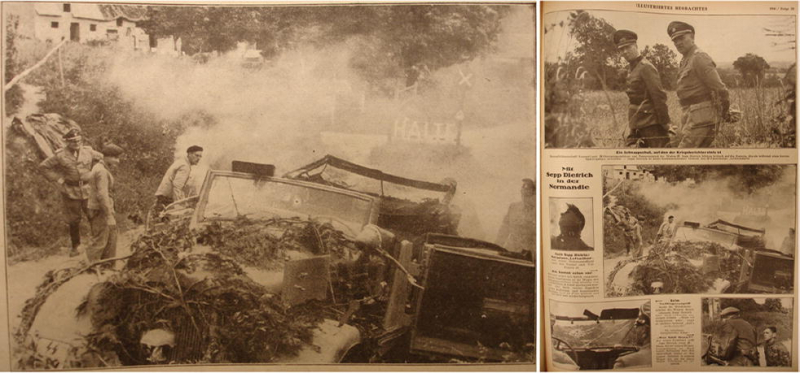
Photo: https://thejns.org/ -
While attending the cadet school, Erwin met Lucia Mollin, who would become his wife. Erwin and Lucia got engaged shortly after they first met, and they soon realized how much they loved one another. Despite his deep affection, he cannot withstand the lure of connections with Walburga Stemmer.
Rommel made friends with Walburga Stemmer while he was stationed at Weingarten in 1913, and the two of them welcomed a daughter, Gertrude, on December 8, 1913. Rommel felt an honorable link to fulfill his prior vow to Mollin because Mollin is more suitable to be an officer's wife than Walburga Stemmer. Due to Walburga's working-class background, their love was doomed to failure. She was unable to marry an officer due to social norms at the time. In addition, Erwin is unwavering in his dedication to Lucia.
In Danzig, Germany, in November 1916, Rommel and Mollin were wed. Rommel and his wife had a very happy marriage, and when working in the fields, he wrote at least one letter to her every day. Erwin was persuaded by Lucia to help assist Walburga and her daughter, who agreed to take on the child's financial obligations. An intriguing detail about Erwin Rommel is that they all lived together with Lucia, Manfred, and the rest of the family.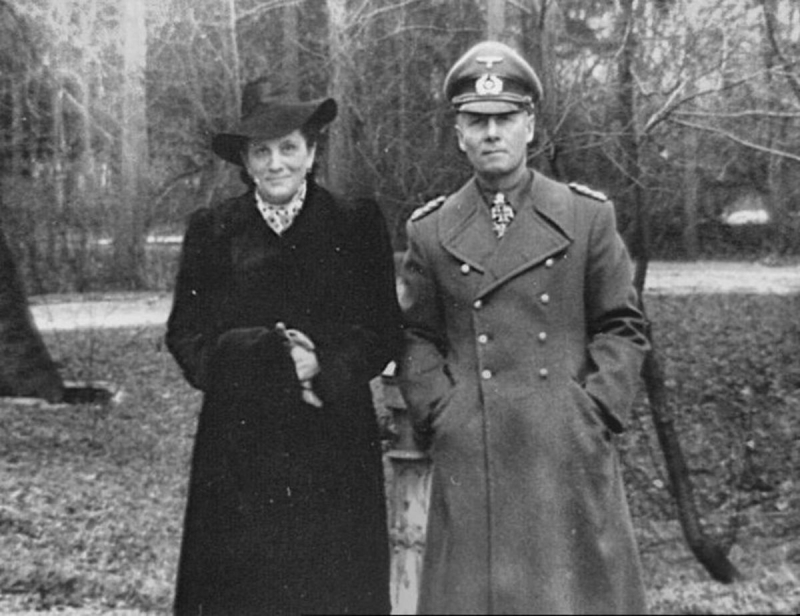
Photo: https://images.saymedia-content.com/ 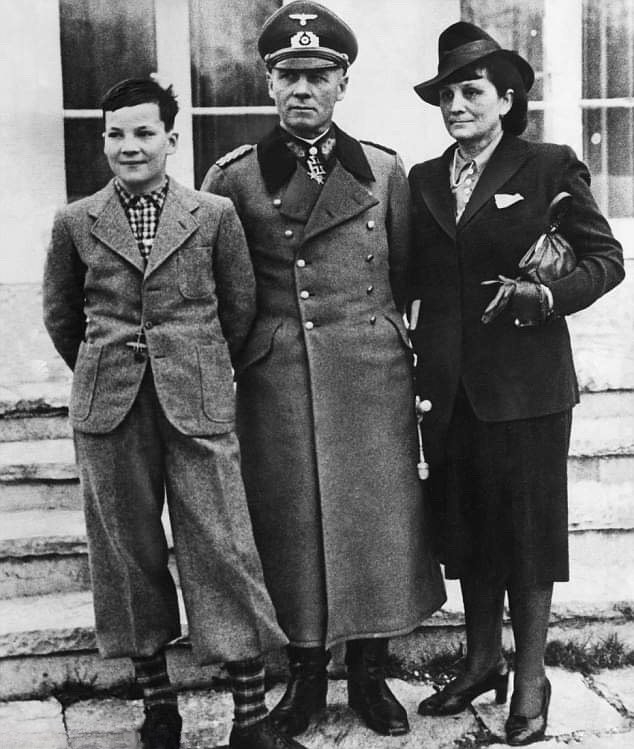
Family photo of Erwin Rommel - Photo: https://i.dailymail.co.uk/ -
One of the interesting facts about Erwin Rommel is that he was an early admirer of Hitler. The Western Allies, who are currently engaged in an ideological conflict with the Soviet Union, attempted to repair Germany's reputation after World War II. Thus, they present Rommel as a brave warrior while highlighting the fact that he ostensibly never joined the Nazi Party. He was an Adolf Hitler enthusiast, if not necessarily sympathetic to the party and the paramilitary groups involved, at least until the conclusion of the war.
He had unmistakable loyalty to Hitler, though. Rommel, who referred to Hitler as a "national unifier," supported his remilitarization strategy after he assumed power. Hitler chose Rommel as the War Ministry's liaison officer for the Hitler Youth in charge of military instruction in February 1937 after learning of his reputation as a top military instructor.
He reportedly had the support of Hitler, Wilhelm List, the commander of the significant Fourteenth Army, and perhaps Guderian, according to Peter Caddick-Adams. Despite Rommel's later notable leadership in France, this promotion went against military protocol and only served to further cement his growing reputation as one of Hitler's favorite generals. allegations about his egotism and political scheming were put to rest.
Rommel later wrote to his wife, saying that "the Führer knows what is right for us," after the two got to know one another in the run-up to the invasion of Poland. He studied Nazi theory and added "Heil Hitler" on his letterhead. Even a signed copy of "Mein Kampf" was given to him by Hitler. Rommel was not demoralized till a long time later.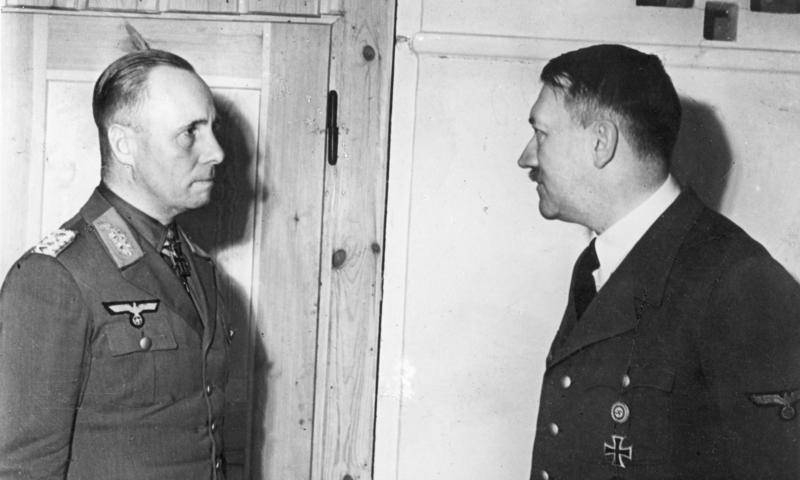
Photo: https://allthatsinteresting.com/ 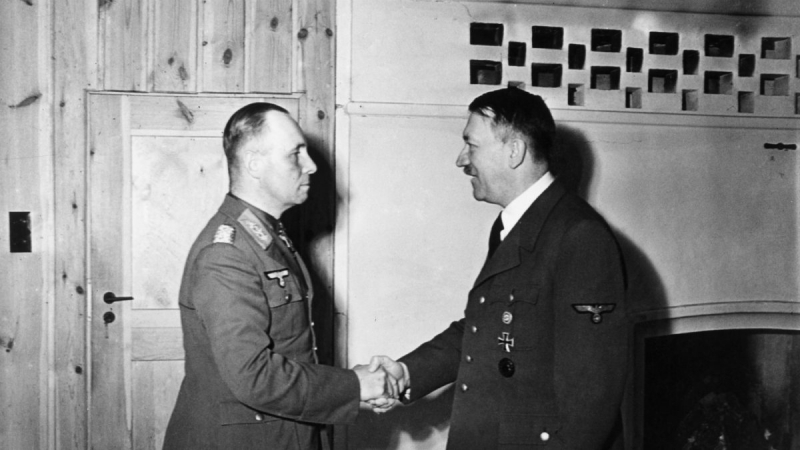
Photo: media.historiahoy.com.ar -
Some revisionist writers claim that opinions about Rommel that were developed, at least in part, for political purposes, to construct what These historians refer to as the "myth of Rommel," have made it difficult to evaluate Rommel's significance in history. The Field Marshal's portrayal of a brilliant, apolitical leader and victim of Nazi Germany who took part in the July 20 plot against Adolf Hitler is the perspective that some historians believe to be mythological. However, several illustrious writers have made neutral or favorable remarks about "The Myth of Rommel" or "The Legend of Rommel."
Erwin decided to open a book about the events of World War 1 and his own experiences in 1935. Rommel's memoirs are where the legend's origins can be discovered, followed by the renowned book. The 1937 bestseller "Infantry Attacks" was written in a way that was different from the German military literature of the day.
Hitler expressed a desire to meet Rommel in person after reading the book and expressing how much he enjoyed it. Hitler named him a liaison officer for the War Ministry following their meeting. Rommel was given charge of the Hitler Youth's officer training program.
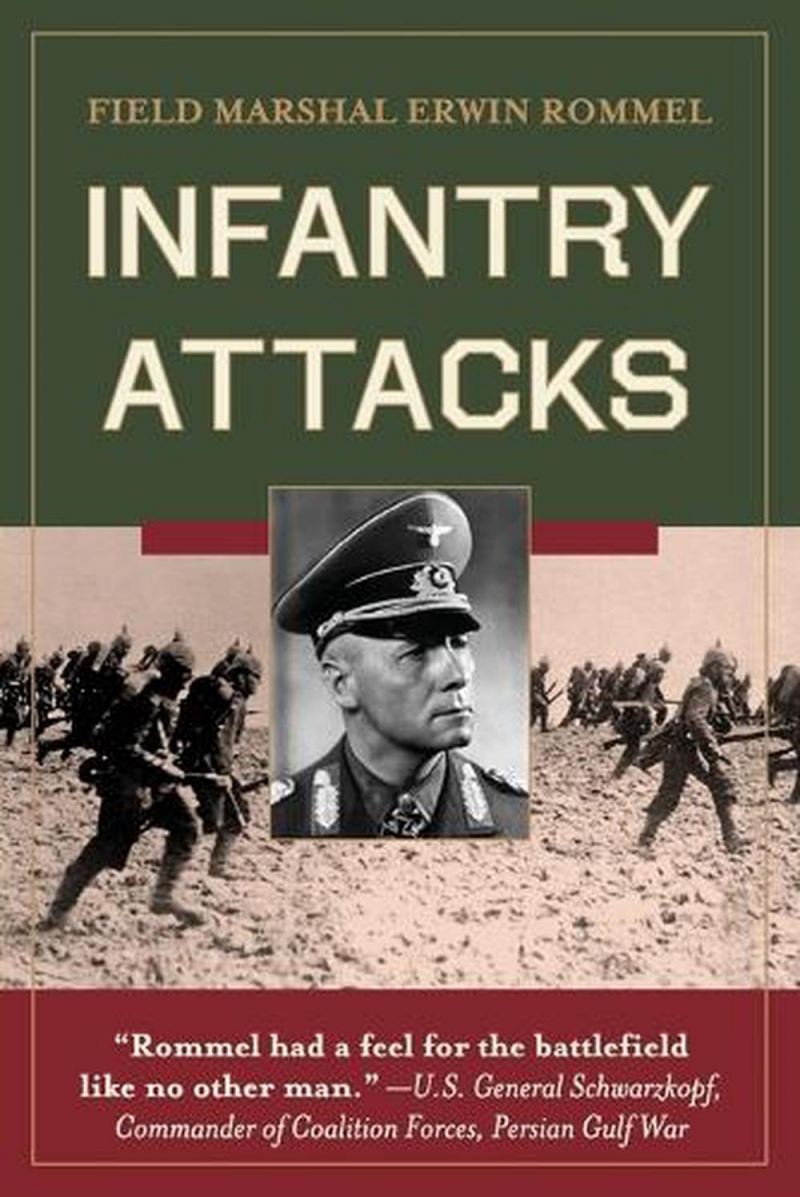
Photo: https://i.thenile.io/ 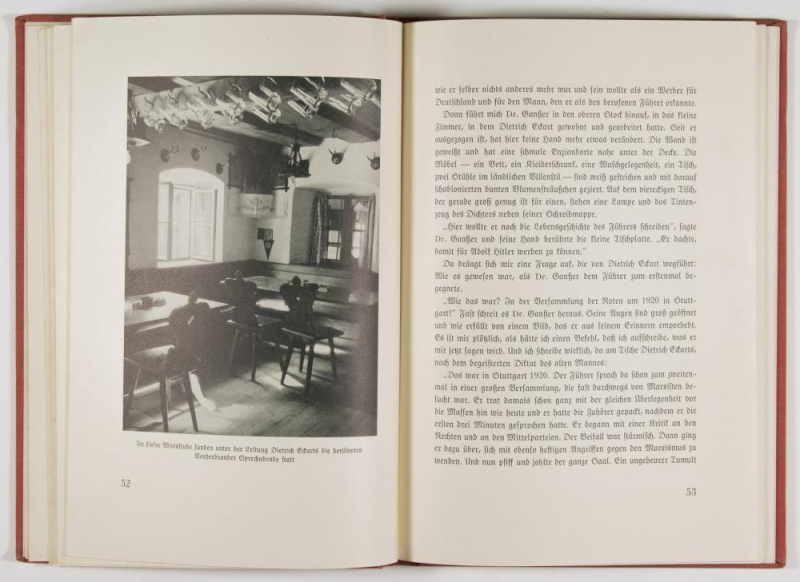
Photo: https://image.invaluable.com/ -
After serving as the commander of a tank division during the French blitzkrieg of 1940, Rommel was sent to North Africa to aid the Italians in their struggle against the British. He quickly reversed the situation, repelling the British hundreds of miles away in a series of audacious assaults, earning him the moniker "Desert Fox" and promotion to field marshal in the process.
The numerically superior British finally stopped their advance near El Alamein, Egypt, in October 1942. When Rommel ran out of tanks, ammo, and fuel, he started to make his escape. Hitler, though, wrote to him and pleaded with him not to give up "not even a yard of land." The Führer said, "As for your army, you can only show them the way to victory or death. Rommel rebelled despite his admiration for Hitler out of concern for the utter destruction of his army. Additionally, he disobeyed orders to tell German generals to put Allied commandos caught behind enemy lines to death.
Rommel ultimately retreated to Tunisia, where he engaged in tank combat with both the British and Americans before returning to Europe in March 1943. The Allies' army completely drove the Germans out of North Africa two months later, preparing the way for their invasion of Italy.
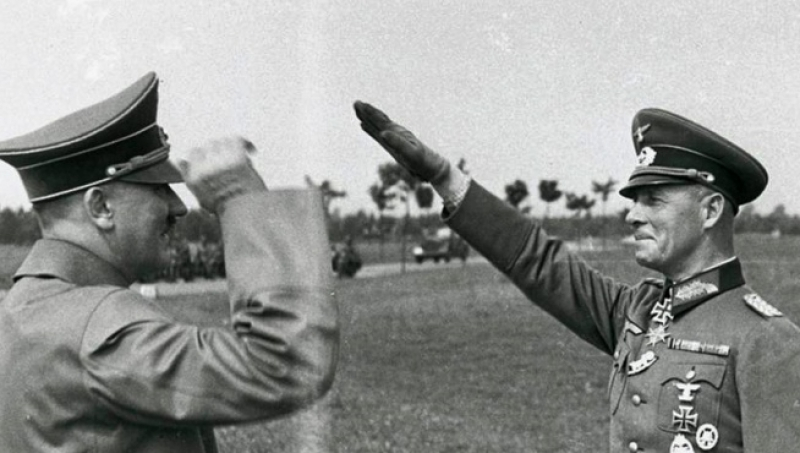
Photo: https://www.moderni-dejiny.cz/ 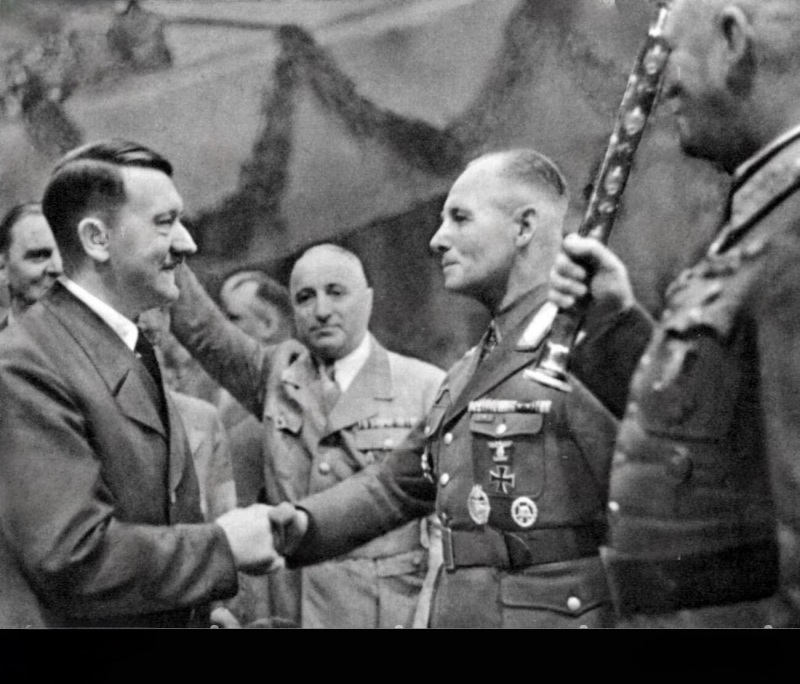
Photo: https://c8.alamy.com/ -
One of the interesting facts about Erwin Rommel is that Erwin Rommel achieved great success during WW1. Rommel participated in the French Army in World War I. He also had a significant part in the campaigns in Italy and Romania.
To reach the enemy positions, he adopted a successful strategy that involved piercing the enemy lines with heavy weaponry and swift attacks as well as moving swiftly to the flanks to reach the back of the hostile positions. strategic surprise Having encountered an unprepared French force near Verdun on August 22, 1914, as a platoon commander, Rommel engaged them in the fire for the first time. without directing the others of his squad to move forward.
Throughout September, the troops continued to fight in open skirmishes rather than the usual static trench combat of World War I. He is a master strategist. He was able to corner the unprepared foe and started firing at them. He was unrecognized for the success he had in September 1914 and January 1915. He received the Second Class Iron Cross. He was assigned leadership of the Wurttemberg Royal Mountain Battalion after being promoted to lieutenant.
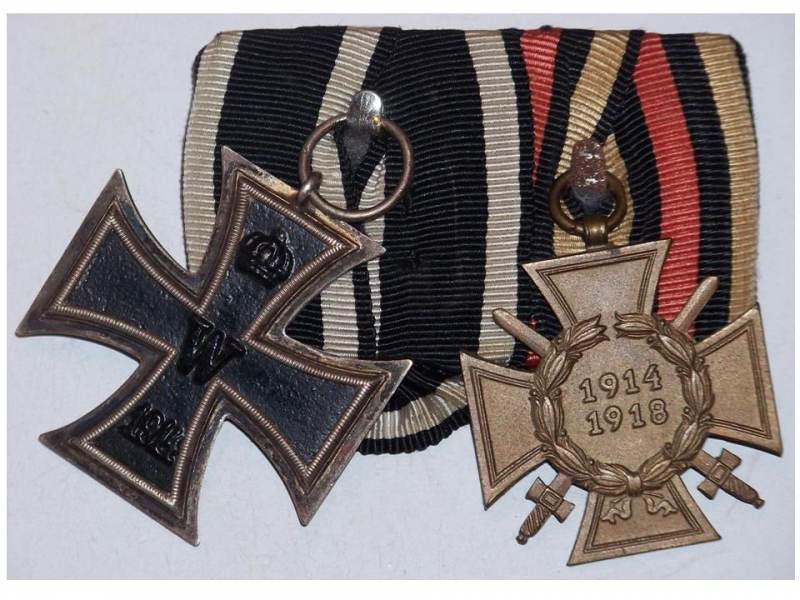
Photo: https://i.pinimg.com/ 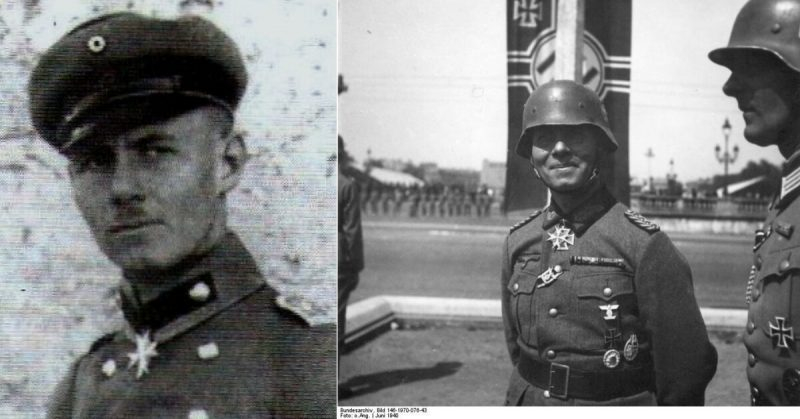
Photo: https://www.warhistoryonline.com/ -
The campaign lasted from February 1941 to May 1943. He became known as one of the vehicle commanders due to his command of the German and Italian forces during the North African campaign the greatest tank of the conflict, earning him the moniker "Desert Fox," or der Wüstenfuchs.
Rommel was chosen to lead the newly formed Afrika Armored Division (Deutsches Afrika Korps; DAK), which included the 15th Armored Division and the 5th Light Division (later renamed the No. 21), on February 6, 1941. On February 12, he was given the rank of Generalleutnant and flew to Tripoli. During Operation Sonnenblume, DAK was sent to Libya to assist Italian troops that were being overrun by hostile forces. Operation Compass resulted in a complete defeat of the British Commonwealth. British press gave Rommel the moniker "Desert Fox" for his work in Operation Western Desert. General Archibald Wavell, Middle East Command's Commander in Chief, led the Allied Army in Africa.Throughout this campaign, Rommel and his forces frequently lacked the necessary tools. Rommel nevertheless carried on fighting. Rommel and his forces were able to survive, keep advancing, and ultimately triumph thanks to a variety of stratagems. He frequently fastens the bushes to the tank with the aid of ropes, which is one of his tricks. Large clouds of sand and dust resulted, covering the tanks' route. The enemy thought that the area where the clouds could be seen as the location of military operations. The choice to withdraw is typically made.
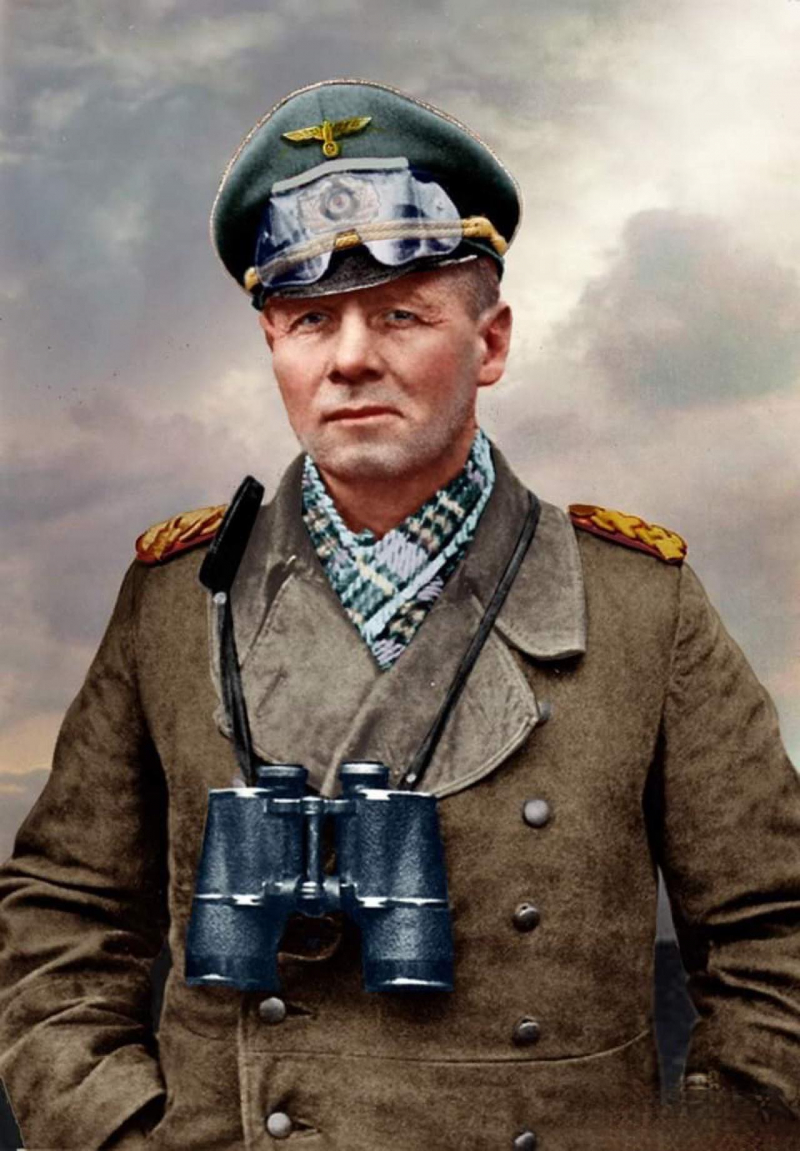
Photo: http://pm1.narvii.com/ 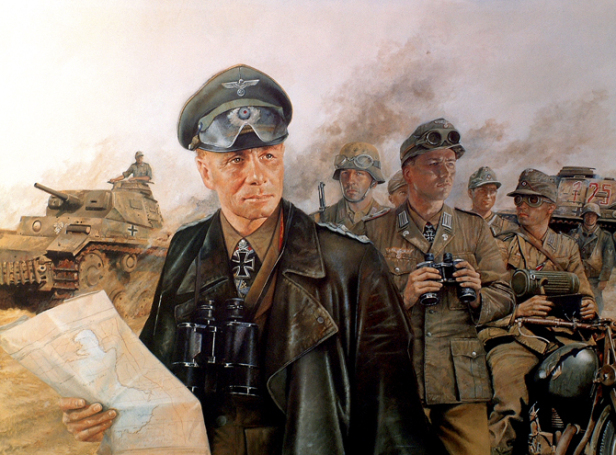
Photo: http://www.renegadetribune.com/ -
One of the interesting facts about Erwin Rommel is that he was suspected of taking part in the resistance against Hitler. Rommel was brought to the hospital with a severe head injury in the summer of 1944. The resistance attempted to murder Hitler three days later. The endeavor was a failure.
A group of high-ranking officials attempted to assassinate Hitler with two bombs as Germany's military situation deteriorated, but they were foiled at the last minute. Rommel talked about the post-Hitler future with some of the masterminds because he was friends with them. His exact level of engagement in the scheme is still a mystery. (According to his widow, he condemned the murder but favored Hitler's capture and prosecution.) Whether or whether he was innocent, his name surfaced during the subsequent conflict in Nazi Germany, which led Hitler to plan his execution.
It's believed that Rommel was fully aware of the Hitler assassination plot. He kept Hitler in the dark about the resistance's intention to kill him even though he did not take part in the murder. From the perspective of his erstwhile adversaries, Rommel's stature increased when he was implicated in the plot to kill Hitler after the war. Rommel is frequently mentioned as a German nationalist prepared to oppose Hitler in Western sources.
Rommel was put under house arrest shortly after that. Many historians think Hitler might have been assassinated if he had been involved in the plot.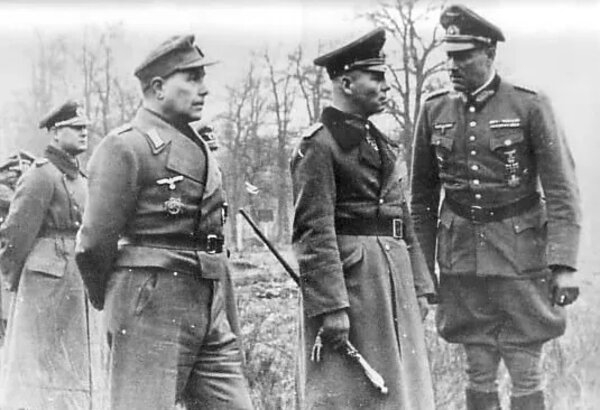
Photo: https://assets.rebelmouse.io/ 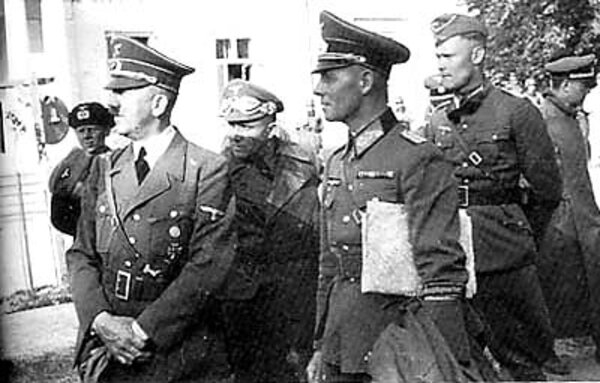
Photo: http://germanygallagher.weebly.com/ -
It was decided to refer Rommel's case to the "Court of Military Honor." The fate of the officers suspected of participating in the conspiracy will be decided by the court.
Two generals in Hitler's administration visited Rommel in October 1944. He was told that he had three choices. He may have gone to Berlin to defend himself against Hitler. The People's Court can hear his case (which will end in a deaf verdict). Nazi officials covered up the great general's later forced suicide by claiming that he had died of his wounds. It was not until the war ended that the truth came to light.
Rommel denied taking part in the murderous scheme. He talks about how much he adores Hitler and how he longs to serve the "Fatherland." Nothing was changed by his statements. He understood he would never succeed in making it happen in Berlin. Even worse, he was unable to get in touch with his headquarters. A terrible aspect of Erwin Rommel is that the only choice left is suicide.
Rommel decided to end his life and told his wife and son why he was doing it. He boarded Burgdorf's vehicle, which was being driven by SS-Stabsscharführer Heinrich Doose, wielding a marshal's baton and wearing an Afrika Korps coat. Doose and Maisel halted the automobile, leaving Rommel in charge of Burgdorf as they exited. Rommel had collapsed after consuming cyanide, and Doose noted this when Burgdorf signaled for the two to head back to the automobile five minutes later. Before being brought to the Wagner-Schule field hospital, he passed away. The gang called Rommel's wife to inform her of his passing ten minutes later.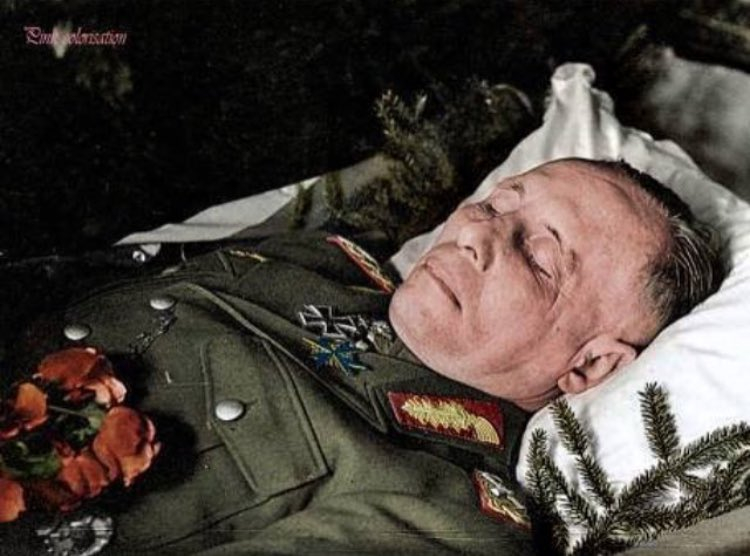
Photo: https://pbs.twimg.com/ 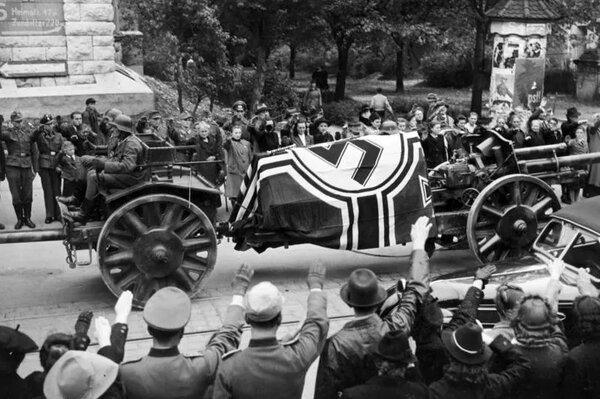
Photo: https://i0.wp.com/












